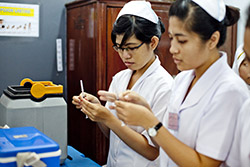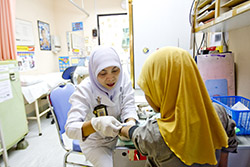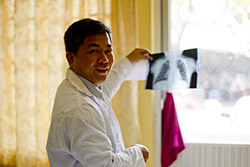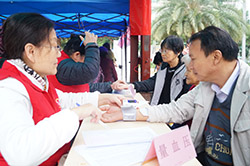Research and Treatment
.png)
TREAT Asia and its network of researchers, HIV clinics, and institutions are working to understand optimal approaches to treating HIV, common co-infections, and comorbid conditions among adults and children, particularly in resource-limited settings. The TREAT Asia network currently includes 21 adult and 20 pediatric clinical sites and orphan support programs in 12 countries, which contribute to a number of research activities and studies.
In 2006, the U.S. National Institute of Allergy and Infectious Diseases (NIAID) selected TREAT Asia to lead the Asia-Pacific component of its global HIV database consortium known as IeDEA.
|
|
 Adult HIV Research Adult HIV Research
TREAT Asia’s network of researchers study numerous aspects of HIV treatment of adults infected with HIV in the region. This includes HIV clinical outcomes, antiretroviral treatment outcomes, and antiretroviral resistance.
|
 Child and Adolescent HIV Research Child and Adolescent HIV Research
TREAT Asia’s network of researchers study numerous aspects of pediatric and adolescent HIV treatment, including HIV clinical and treatment outcomes, antiretroviral resistance, and the transition from pediatric to adult HIV care.
|
 HIV and Co-infection Research HIV and Co-infection Research
HIV is often associated with a number of other infections that include hepatitis B, hepatitis C, tuberculosis, and human papillomavirus infection. TREAT Asia studies how these co-infections affect or are influenced by HIV infection and how they can best be treated.
|
 HIV and Comorbidity Research HIV and Comorbidity Research
As HIV treatment programs become more successful, people living with HIV are often increasingly affected by comorbid conditions such as cardiovascular and neurocognitive disease. TREAT Asia investigators study the link between HIV infection and such conditions, and regional capacities to manage them.
|
 HIV and Cancer Research HIV and Cancer Research
People living with HIV are at increased risk of certain cancers and the infections that cause them. TREAT Asia’s investigators study the prevalence and risk factors of such cancers in HIV-infected populations in Asia.
|
| |